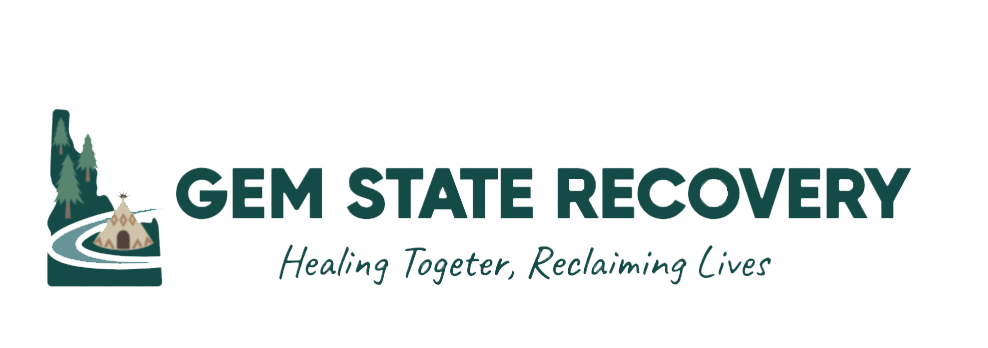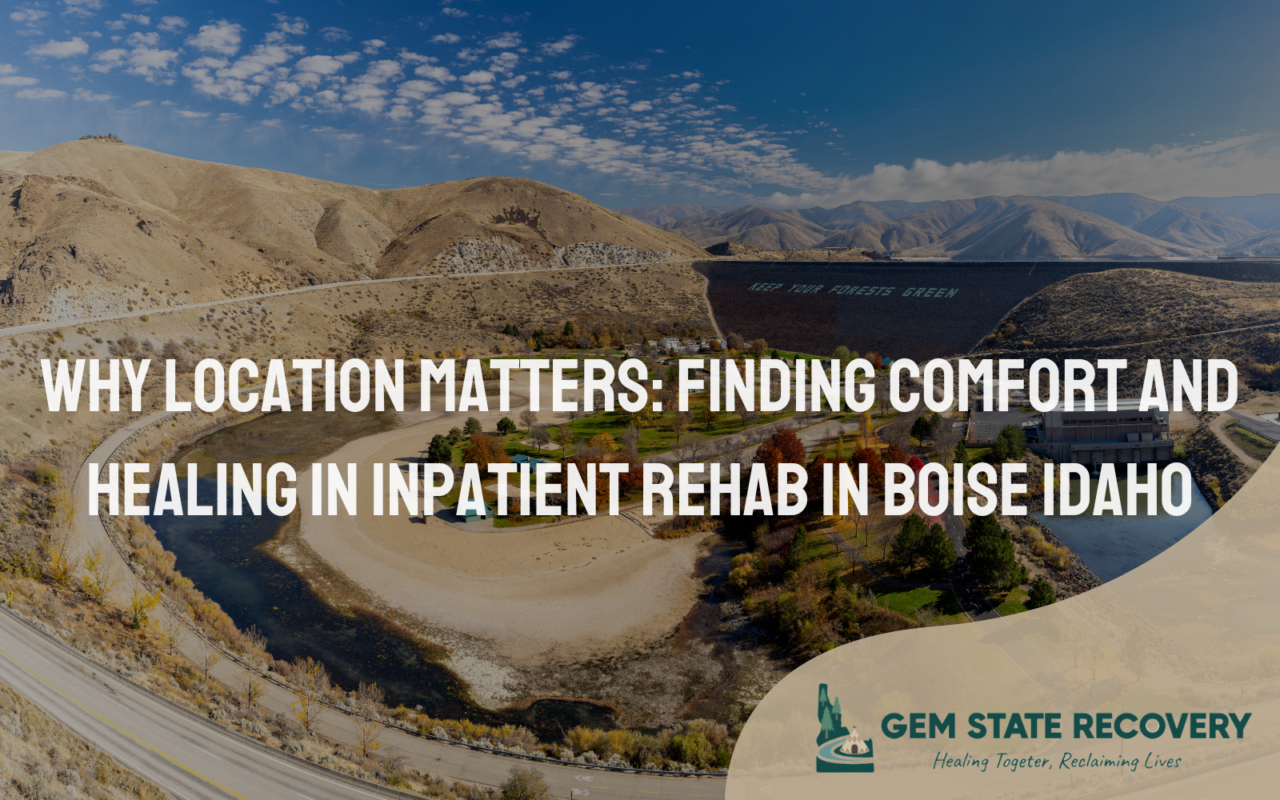When it comes to overcoming addiction, the right environment can make all the difference. A supportive and nurturing setting can significantly enhance the recovery process, providing the peace and stability needed to focus on healing. Today, we’re exploring why inpatient rehab in Boise Idaho stands out as the ideal setting for those seeking recovery. This comprehensive guide covers everything from understanding the role of addiction treatment centers to the unique benefits offered by Boise’s natural beauty and community features. Let’s delve into why location is so crucial in addiction recovery and how inpatient rehab in Boise Idaho provides an exceptional environment for healing.
Understanding Addiction Treatment Centers
Addiction treatment centers are specialized facilities dedicated to helping individuals overcome substance abuse and addiction. These centers offer a variety of programs tailored to meet the diverse needs of patients, including inpatient rehab in Boise Idaho, outpatient, and residential treatment options. Inpatient programs provide intensive, round-the-clock care in a structured environment, while outpatient programs allow patients to live at home and attend therapy sessions. Residential treatment options offer a middle ground, combining the benefits of both inpatient and outpatient care. Additionally, many centers provide holistic therapies, such as yoga and meditation, alongside traditional medical and psychological treatments to support the overall well-being of patients. The goal of these centers is to provide a comprehensive approach to recovery, addressing both the physical and emotional aspects of addiction.
Inpatient Rehab Programs
Inpatient rehab programs, also known as residential treatment, involve patients staying at the facility full-time for a designated period. This immersive approach allows individuals to focus solely on their recovery, free from external distractions and influences that might trigger a relapse. The duration of inpatient stays can vary widely, typically ranging from 30 days to several months, depending on the individual’s specific needs, severity of addiction, and progress during treatment.
During their stay, patients receive comprehensive care that includes medical supervision, individual and group therapy sessions, as well as holistic treatments such as yoga, meditation, and art therapy. The structured environment helps patients develop coping strategies, rebuild their lives, and foster a sense of community with others who are facing similar challenges. Additionally, family involvement is often encouraged to support the patient’s recovery and help mend relationships that may have been strained by addiction. The goal of inpatient rehab is to equip individuals with the tools and resilience needed to achieve long-term sobriety and a healthier lifestyle.
Benefits of Inpatient Rehab
Choosing an inpatient rehab program offers numerous benefits that are critical to achieving long-term sobriety:
- 24/7 Medical Supervision: Continuous medical care ensures that any withdrawal symptoms or medical emergencies are promptly addressed, providing a safe environment for recovery. This round-the-clock supervision can be crucial for those with severe addictions, as it offers immediate access to medical professionals who can manage complications and provide essential care.
- Structured Environment: A daily routine of therapy, activities, and self-care helps individuals establish healthy habits and coping strategies. The structured schedule eliminates the chaos that often accompanies addiction, allowing individuals to focus on their recovery and build a foundation for a healthier lifestyle.
- Access to Comprehensive Therapies: Inpatient facilities offer a range of therapies, including individual counseling, group therapy, and holistic treatments, to address the physical, emotional, and psychological aspects of addiction. This comprehensive approach ensures that all facets of the individual’s well-being are attended to, increasing the chances of a successful and sustainable recovery.
- Supportive Community: Being surrounded by others who are also in recovery creates a sense of camaraderie and mutual support, which can be incredibly motivating. This supportive community fosters a sense of belonging and understanding, helping individuals to share their experiences, learn from others, and build lasting relationships that can be vital to their ongoing recovery journey.
The Importance of Location in Recovery
The location of a treatment center plays a pivotal role in the recovery process. A change of scenery, away from the environment where addiction took root, can be crucial in breaking old habits and patterns. Being in a new, supportive environment, such as an inpatient rehab in Boise Idaho, allows individuals to fully immerse themselves in the healing process without the distractions of their usual surroundings. This new setting can provide a sense of renewal and hope, fostering a mindset conducive to positive change. Additionally, treatment centers often offer serene and tranquil environments, which can enhance the therapeutic experience and provide a much-needed respite from the chaos and stress that may have contributed to the addiction in the first place. Access to nature, fresh air, and peaceful surroundings can significantly impact one’s mental and emotional well-being, further supporting the journey towards recovery.
Nature and Outdoor Activities
Nature has a profound effect on mental and emotional well-being. Studies have shown that spending time outdoors can reduce stress, anxiety, and depression—common challenges faced during recovery. Boise, with its stunning landscapes and abundance of outdoor activities, offers an ideal setting for individuals to reconnect with nature and find peace. Whether hiking the scenic trails, enjoying water activities on the Boise River, or simply taking in the serene mountain views, nature serves as a powerful healing force.
Fresh Perspective and Motivation
A new environment can symbolize a new beginning, providing individuals with a fresh perspective on life. The beauty and tranquility of Boise’s surroundings can inspire a renewed commitment to recovery, helping individuals leave behind the struggles of the past and focus on building a healthier future.
Why Boise, Idaho?
Boise, the capital city of Idaho, is more than just a picturesque location; it is an ideal setting for addiction treatment due to its unique blend of natural beauty, recreational opportunities, and a supportive community.
Natural Beauty and Recreational Activities
Nestled in the foothills of the Rocky Mountains, Boise offers an inspiring and tranquil environment that promotes healing. The city’s vibrant cultural scene and friendly residents create a welcoming atmosphere. Outdoor enthusiasts will find no shortage of activities, from exploring the Boise River Greenbelt—a scenic pathway along the river that offers biking, walking, and wildlife viewing opportunities—to hiking in the nearby Boise National Forest. These activities not only provide physical benefits but also contribute to mental and emotional well-being, offering a natural remedy for the stress and challenges of recovery.
Supportive Community
Boise’s community is known for its warmth and welcoming nature, making it an excellent place for individuals in recovery. The city’s supportive atmosphere is bolstered by numerous events and activities that foster a sense of belonging and connection. Local support groups, recovery meetings, and community events offer a chance for individuals to connect with others who understand their journey, providing a network of support that extends beyond the treatment facility. Inpatient rehab in Boise Idaho benefits greatly from this nurturing environment, enhancing the recovery process for many.
Inpatient Rehab in Boise: What to Expect
Inpatient rehab in Boise Idaho programs are characterized by a comprehensive and personalized approach to addiction treatment. These facilities provide a safe and structured environment where individuals can focus on their recovery without distractions.
Personalized Treatment Plans
One of the hallmarks of inpatient rehab in Boise Idaho is the personalized approach to treatment. Each individual’s needs and circumstances are carefully assessed to create a tailored treatment plan. This plan typically includes a combination of therapies, counseling sessions, and support services designed to address the unique challenges faced by each patient.
Role of Medical Professionals and Therapists
A dedicated team of medical professionals, therapists, and counselors plays a crucial role in the treatment process. They provide continuous support, monitor progress, and adjust treatment plans as needed. The daily schedule in an inpatient facility often includes individual counseling, group therapy sessions, recreational activities, and time for reflection and relaxation. This structured environment helps patients develop new coping strategies and build resilience against relapse.

Comprehensive Therapies and Treatments
Inpatient rehab programs in Boise offer a wide range of therapies to support recovery. Cognitive-behavioral therapy (CBT), group therapy, and individual counseling are fundamental components of most treatment plans. These therapies help individuals understand the root causes of their addiction and develop healthy coping strategies. In addition to these core therapies, programs often include holistic approaches such as mindfulness meditation, nutritional counseling, and physical fitness activities. This comprehensive approach ensures that patients receive well-rounded care, addressing both their mental and physical well-being as they embark on the path to recovery.
Holistic and Alternative Therapies
Holistic and alternative treatments are also available to address the mental, emotional, and physical aspects of recovery. Art therapy, equine therapy, yoga, meditation, and mindfulness practices are just a few examples of the diverse approaches used to promote healing. These therapies can be particularly effective in helping individuals express emotions, build self-awareness, and develop new skills. They provide a holistic approach to healing, addressing not just the symptoms of addiction but the whole person.
Dual Diagnosis Treatment
For individuals with co-occurring mental health disorders, dual diagnosis treatment is essential. Many inpatient rehab programs in Boise are equipped to provide integrated care that addresses both addiction and mental health issues simultaneously. This comprehensive approach ensures that all aspects of an individual’s health are treated, providing a more robust foundation for long-term recovery.
Family Therapy and Support
Family therapy is another critical component of treatment in Boise’s inpatient rehab programs. Addiction affects not just the individual but also their loved ones. Family therapy helps to rebuild relationships, improve communication, and create a supportive network for the individual in recovery. This therapy can be invaluable in mending relationships and providing a supportive environment for sustained recovery.
Finding Comfort and Healing through Community Support
Community support is a vital element of addiction recovery. In Boise, numerous local support groups and organizations provide ongoing assistance to individuals in recovery. These groups offer a sense of community and connection that can be incredibly empowering.
Building a Supportive Network
Inpatient rehab programs in Boise Idaho emphasize the importance of community. Patients often form strong bonds with peers who are going through similar experiences, creating a network of support that extends beyond the treatment period. This sense of connection can be a powerful motivator and source of encouragement, helping individuals stay committed to their recovery journey.
Alumni and Aftercare Programs
Success stories from individuals who have completed inpatient rehab in Boise Idaho highlight the effectiveness of these programs. Many alumni continue to participate in ongoing support programs, such as alumni groups and resources, which help maintain long-term sobriety. These programs provide a space for former patients to share their experiences, support each other, and continue their growth and healing.
Aftercare and Continuing Support
Aftercare planning is crucial for sustaining recovery after completing an inpatient rehab program. Boise offers a variety of aftercare services, including sober living homes, outpatient programs, and support groups. These resources provide continued support and guidance as individuals transition back to their daily lives. For those seeking inpatient rehab in Boise Idaho, these aftercare options are invaluable for maintaining long-term sobriety.
Ongoing Therapy and Counseling
Regular sessions with a therapist or counselor can help address any emerging challenges and reinforce the skills learned during treatment. These sessions provide an opportunity to explore ongoing issues, set new goals, and celebrate milestones in recovery. Access to local and national support networks is also essential, providing additional resources and a sense of community.
Conclusion
Location is pivotal in addiction treatment, and Boise, Idaho, offers a unique and supportive environment for recovery. Renowned for its natural beauty, recreational opportunities, and tight-knit community, Boise is an ideal setting for inpatient rehab. The city’s blend of scenic landscapes, abundant outdoor activities, and welcoming community fosters an atmosphere conducive to healing and personal growth.
If you or a loved one is considering addiction treatment, the benefits of choosing an inpatient rehab in Boise Idaho are clear. The right environment, combined with personalized care and comprehensive support, can make all the difference in achieving long-lasting recovery. Take the first step towards a healthier, happier life by exploring the inpatient rehab options available in Boise Idaho. With the right support and environment, finding comfort and healing is not just possible—it’s within reach. Visit our website https://gemstaterecovery.com/ or call us at (208) 314-3107.





